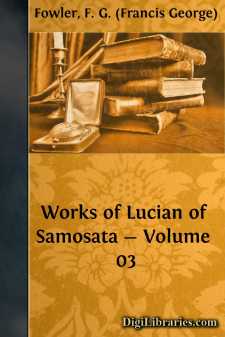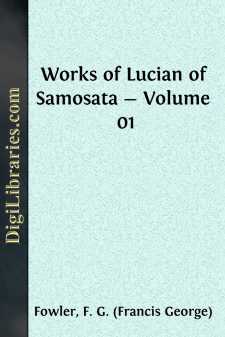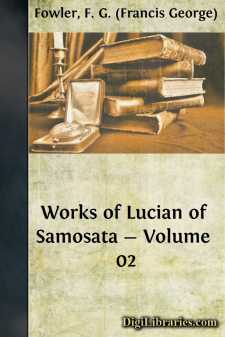Categories
- Antiques & Collectibles 13
- Architecture 36
- Art 48
- Bibles 22
- Biography & Autobiography 813
- Body, Mind & Spirit 142
- Business & Economics 28
- Children's Books 16
- Children's Fiction 13
- Computers 4
- Cooking 94
- Crafts & Hobbies 4
- Drama 346
- Education 46
- Family & Relationships 57
- Fiction 11829
- Games 19
- Gardening 17
- Health & Fitness 34
- History 1377
- House & Home 1
- Humor 147
- Juvenile Fiction 1873
- Juvenile Nonfiction 202
- Language Arts & Disciplines 88
- Law 16
- Literary Collections 686
- Literary Criticism 179
- Mathematics 13
- Medical 41
- Music 40
- Nature 179
- Non-Classifiable 1768
- Performing Arts 7
- Periodicals 1453
- Philosophy 64
- Photography 2
- Poetry 896
- Political Science 203
- Psychology 42
- Reference 154
- Religion 513
- Science 126
- Self-Help 84
- Social Science 81
- Sports & Recreation 34
- Study Aids 3
- Technology & Engineering 59
- Transportation 23
- Travel 463
- True Crime 29
F. G. (Francis George) Fowler
Francis George Fowler was a British grammarian and lexicographer, known for his work on English usage and grammar. He co-authored several influential works with his brother, Henry Watson Fowler, including the highly regarded "The King's English" (1906), which focused on the proper usage of the English language. Together, they also began work on "A Dictionary of Modern English Usage," though Francis passed away before its completion, and Henry finished the project. Francis George Fowler's contributions remain significant in the study of English grammar and style.
Author's Books:
Sort by:
LIFE OF DEMONAX It was in the book of Fate that even this age of ours should not be destitute entirely of noteworthy and memorable men, but produce a body of extraordinary power, and a mind of surpassing wisdom. My allusions are to Sostratus the Boeotian, whom the Greeks called, and believed to be, Heracles; and more particularly to the philosopher Demonax. I saw and marvelled at both of them, and with...
more...
1. LIFE With the exception of a very small number of statements, of which the truth is by no means certain, all that we know of Lucian is derived from his own writings. And any reader who prefers to have his facts at first rather than at second hand can consequently get them by reading certain of his pieces, and making the natural deductions from them. Those that contain biographical matter are, in the...
more...
The dependent scholar! The great man's licensed friend!—if friend, not slave, is to be the word. Believe me, Timocles, amid the humiliation and drudgery of his lot, I know not where to turn for a beginning. Many, if not most, of his hardships are familiar to me; not, heaven knows, from personal experience, for I have never been reduced to such extremity, and pray that I never may be; but from...
more...




